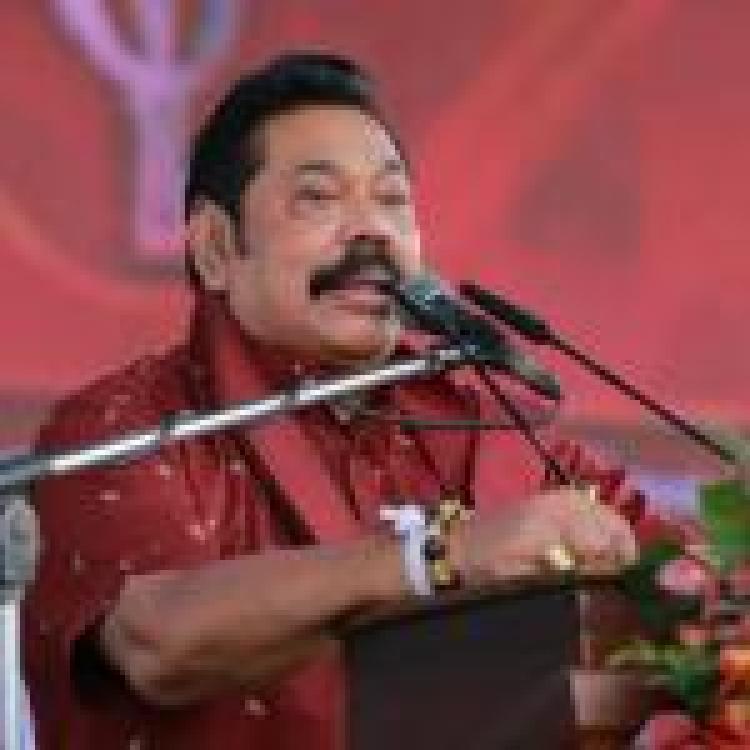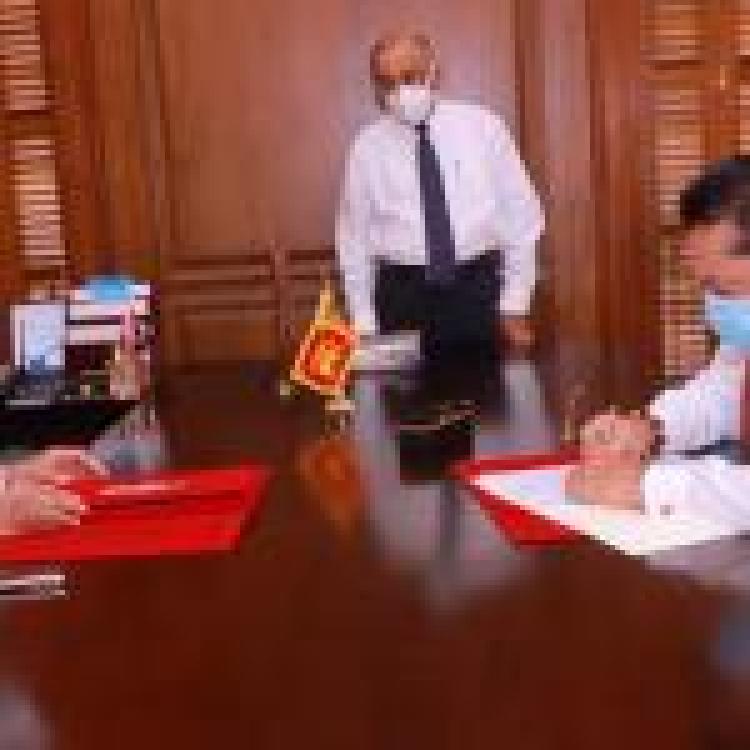![]()
Sri Lankan Prime Minister and leader of the SLPP, Mahinda Rajapaksa, has called for a two-thirds majority in upcoming general election, to repeal the 19th amendment (19A), which limits the powers of the executive presidency.
Rajapaksa claims that the 19A was “brought in to take personal revenge” upon him and that it made the constitution “a joke”. It is only by repealing the 19A, Rajapaksa maintains, that Sri Lanka will be able to address the shortcomings of the previous administration and deliver a “strong government”.
The call to revoke the 19th amendment follows increasing concern over Sri Lanka’s slide towards authoritarianism through the appointment of two all Sinhala Presidential task forces, which include senior military figures accused of war crimes, and have been described as "a threat to the rule of law".
Rajapaksa insists that the economic issues which have plagued the country for the past give years are primarily due to political divisions between the President and Prime Minister.
“The main reason for that was the Government didn’t have a proper economic direction, and the President and the Prime Minister were from two different political parties with different ideologies”, he stated.
The move to “unify” political views follows a statement from his brother and Sri Lankan President, Gotabaya Rajapaksa, who insisted on the need for the media to follow correct practices to “preserve Sri Lankan identity and cultural values”. Gotabaya Rajapaksa’s previous tenure, during which he held the post of defence secretary, saw murders, kidnappings and persecution of media personnel who were critical of the government.
The 19th Amendment
The 19th amendment was passed on 28 April 2015 with 215 out of 225 members voting in favour of the amendment. The amendment sought to weaken the power of the presidency which the 18th amendment, passed in September 2010, had greatly expanded.
The 18th amendment was a controversial bill that leads political commentators such as Gulbin Sultana from India’s Institute for Defence Studies and Analyses to decry the decision as a move towards “nepotism and dictatorship which will certainly have disastrous consequences”.
Sultana notes that the 18th amendment allowed four basic changes:
- The President can seek re-election any number of times;
- The ten-member Constitutional Council has been replaced with a five-member Parliamentary Council;
- Independent commissions are brought under the authority of the President; and,
- It enables the President to attend Parliament once in three months and entitles him to all the privilges, immunities, and powers of a Member of Parliament other thant the entitlement to vote.
The 19th amendment counterbalanced many of these decisions and restored components of the 17th amendment. Most notably, the 19th amendment caps the presidency at two terms and disallows dissolution of Parliament by the President before four-and-a-half years of its term.
Read more here: President Sirisena calls for a repeal of the 19th amendment
The 2018 Coup
In 2018 a great deal of concern over the 19th amendment arose as then President, Maithripala Sirisena, appointed Mahinda Rajapaksa as Prime Minister before dismissing Ranil Wickremesinghe as Prime Minister.
After learning that Rajapaksa was appointed Prime Minister, Wickremasinghe refused to resign and vigorously opposed the move. His party, the UNP, accused Sirisena of robbing the “people of their rights and democracy” and maintained that they violated the 19th amendment which Sirisena had co-sponsored.
The majority of Sri Lanka’s parliament and oppositional parties refused to acknowledge the appointment of Rajapaksa, describing the move as unconstitutional.
Read more from Financial Times Lk.



